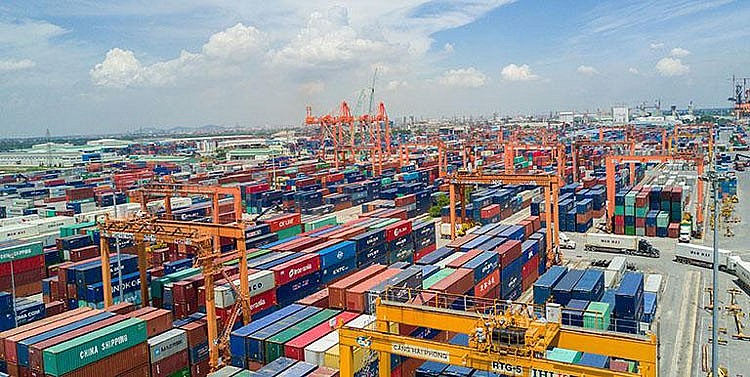Total number of posts 463.
In its annual World Economic Outlook released in Washington, the International Monetary Fund (IMF) forecast Vietnam to be among the best-performing economies in East Asia and the Pacific this year, along with the Philippines and Cambodia.

The Philippine economy is forecast to grow by 6.0 percent — the fastest pace among the 15 members of the Regional Comprehensive Economic Partnership (RCEP). Cambodia ranked second along with Vietnam, with both economies expected to grow by 5.8 percent.
Other projections are 5.2% for China, 5.0% for Indonesia, 4.5% for Malaysia, 4.0% for Laos, 3.4% for Thailand, 3.3% for Brunei, 2.6% for Myanmar, 1.6% for Australia, 1.5% for both South Korea and Singapore, 1.3% for Japan and 1.1% for New Zealand.Effective last year, RCEP is the world's largest trade agreement.
For the world economy as a whole, the IMF forecasts growth at 2.8 percent this year — 0.1 percentage point lower than its January forecast from last October. On the surface, the global economy appears to have gradually recovered from the blows of the pandemic and the conflict in Ukraine. For China, confidence is also returning after reopening its economy. Supply chain disruptions are easing, while disruption to energy and food markets caused by the war is abating.
At the same time, large-scale and synchronized monetary policy tightening by most central banks will begin to bear fruit, with inflation returning to targets. Beneath the surface, however, chaos is still looming, of which the recent banking turmoil is an example.
IMF economic adviser Pierre-Olivier Gourinchas said downside risks dominated the outlook for the global economy. The world is now entering a "difficult period" with historically lackluster growth, greater financial risks and persistent inflation.
After Swiss rival UBS took over Credit Suisse last month, what has investors wondering is what will be the next weakest link. It could be financial institutions that use too much leverage, credit risk, interest rate risk or dependence on short-term capital.
The IMF report said that in a severe downturn scenario, global GDP per capita could be on the verge of declining — an outcome whose probability is estimated to be around 15%.
The world is entering a dangerous period in which economic growth remains low by historical standards and financial risks rise, while inflation has not changed decisively. The IMF's latest forecasts also show an overall decline in medium-term growth forecasts.
The growth forecast for the next five years has gradually decreased from 5.4% in 6 to 2011% in 3. This partly reflects that previously rapidly growing economies such as China or South Korea are slowing down.














